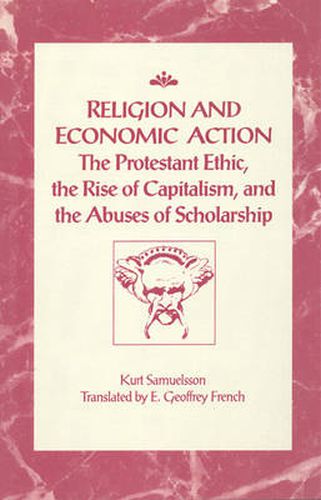Readings Newsletter
Become a Readings Member to make your shopping experience even easier.
Sign in or sign up for free!
You’re not far away from qualifying for FREE standard shipping within Australia
You’ve qualified for FREE standard shipping within Australia
The cart is loading…






The idea that capitalism grew out of Puritan values, as unlikely as it seems, has aroused much interest among economic historians. First proposed by Max Weber, the hypothesis gained wide acceptance through the writings of R.H. Tawney. In this bold and hard-hitting essay, Samuelsson cuts through the controversy and convincingly challenges Weber’s hypothesis and many of Tawney’s theories. His vigorous reassessment of the spirit and ethics of both capitalism and Puritanism effectively dismantles the notion of any functional relationship between Christianity and capitalism. First published in Sweden in 1957, Samuelsson’s essay was translated into English in 1961 and had an immediate impact on scholarly debates in the English-speaking world. His work will be of special interest to students of religious history, economics, and political science.
$9.00 standard shipping within Australia
FREE standard shipping within Australia for orders over $100.00
Express & International shipping calculated at checkout
The idea that capitalism grew out of Puritan values, as unlikely as it seems, has aroused much interest among economic historians. First proposed by Max Weber, the hypothesis gained wide acceptance through the writings of R.H. Tawney. In this bold and hard-hitting essay, Samuelsson cuts through the controversy and convincingly challenges Weber’s hypothesis and many of Tawney’s theories. His vigorous reassessment of the spirit and ethics of both capitalism and Puritanism effectively dismantles the notion of any functional relationship between Christianity and capitalism. First published in Sweden in 1957, Samuelsson’s essay was translated into English in 1961 and had an immediate impact on scholarly debates in the English-speaking world. His work will be of special interest to students of religious history, economics, and political science.